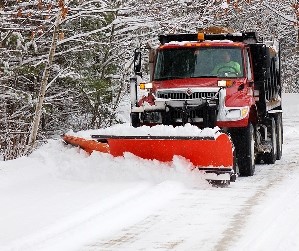Contract Basics

Perhaps one of the most challenging, intimidating, and without a doubt most significant actions of the Board of Directors is engaging in contracts. Of course, assistance in navigating the abyss of contract language is one of the roles your community manager/management company can play. (And if it is a large or complicated contract, it is always advisable to have it reviewed by the Association’s attorney.) Whether it is a service contract for the lawn/snow company, a short and straightforward contract for “time and materials” to do touch up painting, or a multi-million dollar building envelope remediation project, there are a few key contract components to review and understand. Parties to the Contract – the contract should state the complete legal names, addresses and contact information for all involved. Typically, the parties include the Contractor and the Association. Important note: the contract should always be with the Association; not the management company. You’ll need to pay special attention how your Association is named in the contract. It is vitally important that the legal entity names are 100% accurate. Don’t assume you are just “Happy Valley Association.” Check the Articles of Incorporation for exact wording. You may be surprised to see that it could actually be something like the “Happy Valley Condominium Association, Inc.” Scope of Work – If an RFP was utilized, it should be all that much easier – but the scope of work should be included (or attached) and spell out specifically what work is to be done. For the Association’s protection, the more detail, the better. Don’t be afraid to ask for details to be spelled out. Compensation – The contract should lay out the total amount to be paid for the project, when payments are due, retainers/down payments (if required) and the manner in which they are to be paid. And once again, the specifics of the legal company name being paid is extremely important. Time Period – Whenever possible, you should try to get contracts to state a date when the work is to begin and when it must be completed by. If it is a dynamic or complicated project, consider negotiating cost reductions if timetables are not met. Warranty – The warranty should cover four very basic components: 1.) What is covered – materials and workmanship often times being two separate, but equally important coverages. 2.) What is not covered. 3.) How long are the materials and/or workmanship covered. 4.) What is the process and timeline for workmanship or material defect corrections. Indemnification – It is always advisable to have a clause that states the Contractor will indemnify and hold harmless the Association, and Management company, for damages or fees resulting in claims made against the Association due to the Contractor’s work. This should also include legal costs incurred with defending any such claims. Insurance, Licenses and Permits – Always request to see a Certificate of Insurance before work commences with a Contractor. Also consider putting language into the contract that says all federal, state and local laws, codes and ordinances are applicable. Termination & Default – The Association should always have a path to terminate a contract, if so desired. Typical and recommended language is “with or without cause” – and often times it will give a specific period of time after giving appropriate notice. This is particularly important for running service contacts – lawn/snow contracts, as perhaps the most common example. The contract should also provide for specific language constituting a default or failure to fulfill the terms of the agreement/contract – and what each party’s rights are in a default. There are certainly other important elements to various contracts and agreements – and by no means is this content a comprehensive analysis of the components we have addressed. To reiterate, if it is a large or dynamic contract – or even if it just a poorly worded or confusing contract – it is always advisable to have an attorney review.
Snow Contracts and Expectations

As much as we all don’t want to admit it, winter is coming back to Minnesota. When the white stuff starts to fall again, it’s important for homeowners to understand how specifications in snow contracts will affect when snow is removed from your roadways and driveways. First off, every snow contract is unique. To better understand the nuances of your contract, check with your Board or contact Sharper Management. We are happy to share this information with you. In this article, we will be covering some of the most common specs of a snow removal contract. Specs that will affect your contract include: Trigger Depth – Most contracts will state an accumulation total that must be met before snow service will commence. This can be anywhere from a trace up to multiple inches. For most, it is somewhere between 1″-2″. This can be one of the biggest variables in the pricing of your snow contract. Accumulations – The definition of “trigger depth” is important. Does your contract state that service will happen when the trigger depth has been met for a single snow event/storm, or is it vague regarding at what point trigger depth is met? There is a significant difference between the definitions. For example, you could have a winter where less than 1″ of snow accumulates per event, but there may be many events like this in a relatively short period of days thus creating heavily packed drives in your association. Most contracts are written “by event”. Timing – The second most important component of your contract is the time in which snow service must be completed. For most contracts, “final cleanup” is somewhere between 6-12 hours after the snow has stopped falling. This timeline is also subject to snow accumulation totals. The more snow received, the more time allowed for cleanup. Open-Ups – Most contracts provide for an open-up during snowfall events that exceed a particular total. For example, if 4″-6″ of snow depth is met, but the event has not stopped, it is common for an open up to happen. Open-ups are simply done to allow vehicles to come in and out of the complex. They are not the same as a final clean up. Open-ups generally consist of a single pass through the roadways with the plow. One thing to define in your snow contract is whether open-ups include driveways, or just main roadways. Typical language states that an open-up will occur prior to __AM and/or after __PM. Knowing a bit more about how your snow contract is written may alleviate some frustrations over the coming months. Stay safe this winter!
Josh Reams Promoted to Associate Director of Community Management

[et_pb_section admin_label=”section”][et_pb_row admin_label=”row”][et_pb_column type=”4_4″][et_pb_text admin_label=”Text” background_layout=”light” text_orientation=”left” use_border_color=”off” border_color=”#ffffff” border_style=”solid”] Matt Froehlich Sharper Management 10340 Viking Dr, Ste 105 Eden Prairie, MN 55344 For Immediate Release Josh Reams Promoted to Associate Director of Community Management Eden Prairie, MN, (August 31, 2016) – Sharper Management is pleased to announce Community Manager Josh Reams has been promoted to Associate Director of Community Management. Reams has been part of the Sharper Management team since 2013. An experienced community management professional, he has worked in the common interest community management industry for over 10 years. While always managing a full and diverse portfolio of properties throughout his career, Reams has simultaneously held roles and duties in managing the maintenance team and scheduling, new business generation and marketing efforts, and manager training. A recognized professional, Reams has earned the designations of Certified Manager of Community Associations (CMCA) and Association Management Specialist (AMS). Due to his knowledge base and his commitment to the Sharper Management vision, Reams has consistently received high marks from the associations he manages. In his new position, Reams will be supervising a portion of the Community Management staff at Sharper Management. “We look forward to having Josh in a leadership position where he can share his extensive knowledge and his relationship-based style of management with other Community Managers at Sharper,” states Director of Operations, Matt Froehlich. When not at work, Reams enjoys spending time with his family; wife, Megan and his two children Abigail (6) and son Jackson (4). He is also an avid golfer and a creative guy who enjoys writing and recording music. Founded in 2010, Sharper Management is a locally-owned, mid-sized property management company offering a full suite of premiere services to homeowner and commercial associations of all sizes. Sharper Management currently provides services to the Minneapolis-St. Paul seven-county area. Sharper Management was recently named to the Business Journal’s Book of List as one of the top property management companies in the Minnesota. For more information on Sharper Management services and employment opportunities, call 952-224-4777 or email to info@sharpermanagement.com. [/et_pb_text][/et_pb_column][/et_pb_row][/et_pb_section]
